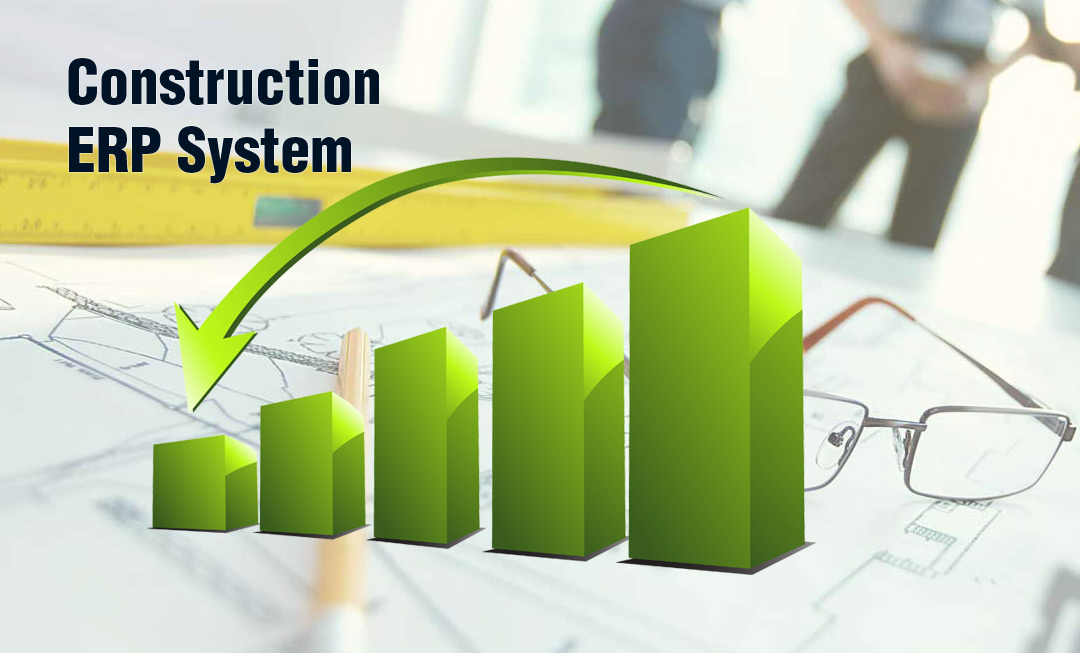
With the increasing costs of construction and the need for organizations to save time and money, the question that is on every construction company’s mind is how does Construction ERP help to increase ROI? Enterprise resource planning (ERP) systems are increasingly being adopted by construction companies as a way to manage projects more effectively and efficiently. Construction ERP software helps organizations to automate and streamline their processes, from project management and accounting to human resources and supply chain management. A construction ERP system can help you improve your bottom line in several ways. In this blog post, we will explore how Construction ERP can help you increase ROI.
What is Construction ERP?
Construction ERP is a software that helps construction companies to manage their projects and resources more efficiently. It enables construction companies to have a clear overview of their projects, which helps them plan and execute their projects more effectively. Construction ERP also provides tools for managing construction contracts, cost estimation, project scheduling, and project management. All these features help construction companies to increase their ROI by reducing the wastage of resources and time.How Construction ERP Can Help Increase ROI
Construction ERP systems are designed to help managers increase ROI by automating and simplifying many construction processes. By automating the scheduling, procurement, and billing processes, construction ERP can help managers save time and money. In addition, construction ERP can help managers track project progress and costs more effectively, allowing for better decision-making. Ultimately, construction ERP can help managers increase ROI by improving efficiency and reducing costs.What are the Benefits of Using Construction ERP?
There are many benefits of using Construction ERP system including:- Increased ROI - With Construction ERP software, you can better manage your projects and resources which leads to increased ROI.
- Better project management - Construction ERP provides you with the tools you need to better manage your construction projects. This includes features such as project tracking, resource management, and more.
- Improved communication and collaboration - Construction ERP helps to improve communication and collaboration between all parties involved in a construction project. This includes contractors, suppliers, employees, and more.
- Reduced costs - With Construction ERP, you can better control costs associated with construction projects. This includes material costs, labour costs, and more.
- Greater efficiency - Construction ERP helps to increase efficiency throughout the construction process. This leads to shorter project timeliness and less waste.
Why Choose a Cloud-Based System?
Cloud-based systems are becoming more popular for a number of reasons. They can be accessed from anywhere, at any time, and from any device with an internet connection. This makes them ideal for businesses with employees who are often on the go or working remotely.Cloud-based systems are also usually more affordable than traditional on-premise software since you only pay for the resources you use and don’t have to invest in expensive hardware. They tend to be more scalable as well, so you can easily add or remove users as your business grows or changes.
Finally, cloud-based construction ERP systems can help you increase ROI by improving collaboration and communication between project managers, engineers, and other team members. With everyone working off the same platform, it’s easier to track progress and make sure tasks are being completed on time and within budget.
How to Implement Construction ERP
Construction ERP systems help to manage and monitor construction projects from start to finish. By automating many of the tasks associated with construction management, construction ERP systems can help to improve project efficiency and accuracy while also reducing costs.When considering a construction ERP system, it is important to choose a system that will fit the specific needs of your business. There are a variety of different features that can be included in a construction ERP system, so it is important to select the features that will be most beneficial for your company. Once you have selected the right system for your business, you will need to implement it into your company's workflow.
The first step in implementing construction ERP software is to train your employees on how to use the system. It is important that all employees who will be using the system are properly trained so that they can utilize all of the features that are available. Once your employees are trained on how to use the system, you can begin integrating it into your company's workflow.
It is important to test the construction ERP system before implementing it into your company's workflow. This will allow you to ensure that the system is working correctly and that there are no glitches. Once you have tested the system and made sure that it is working properly, you can then begin using it in your everyday work processes.
By following these steps, you can ensure that you successfully implement a construction ERP system into your company.